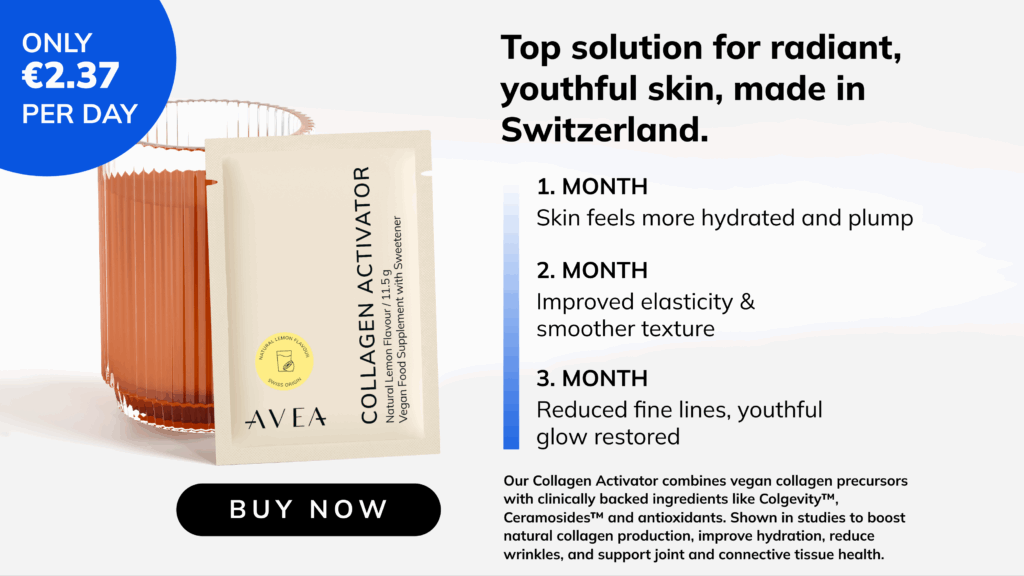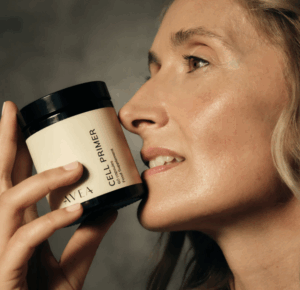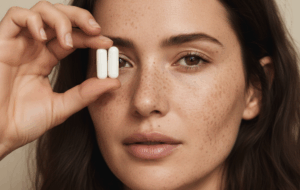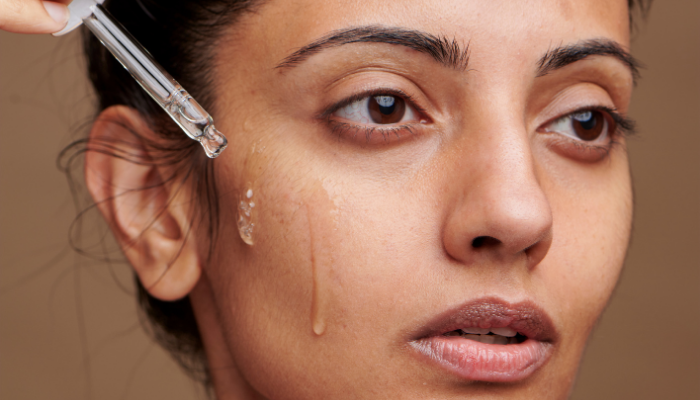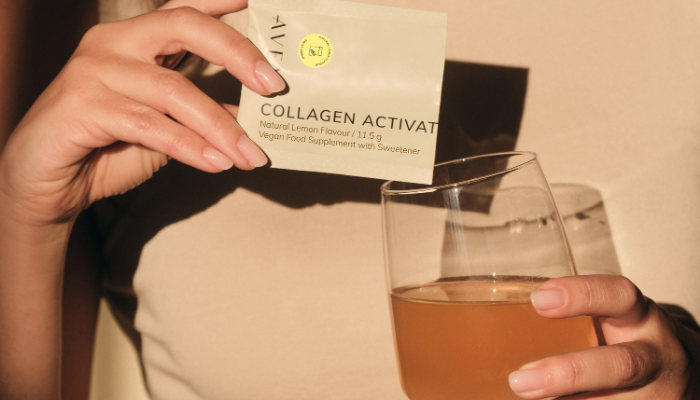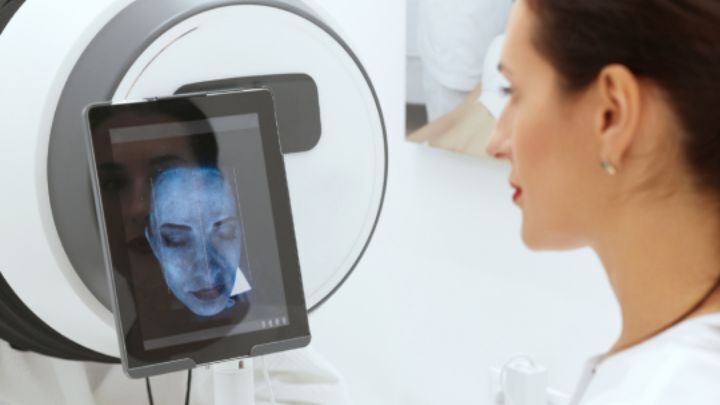Many people seeking youthful, resilient skin turn to collagen creams and masks. While these products can offer temporary surface hydration, they often fail to deliver lasting results because they can’t penetrate the dermis — the deeper skin layer where collagen is actually produced.
Recognising this, skincare experts agree that true skin transformation must start from within. This has led to a boom in collagen supplements. The problem? Not all supplements are created equal. Many are poorly absorbed or lack the key ingredients needed to activate your body’s own collagen-making machinery.
What to look for in a collagen supplement comes down to whether it supports your body’s ability to produce collagen, not just consume protein. An effective collagen supplement should provide the correct collagen-specific amino acids in bioavailable form, include the essential co-factors that enable collagen synthesis, and activate the body’s collagen-producing cells (fibroblasts). Supplements that only supply collagen protein without these elements are often poorly absorbed and fail to meaningfully improve skin, joint, or connective tissue health.
What to Look for in a Collagen Supplement
When evaluating a collagen supplement, the most important factor is whether it supports collagen synthesis, not just collagen intake. Because the body cannot absorb whole collagen molecules intact, effective supplementation depends on providing the right biological signals that tell the body to produce collagen on its own.
A high-quality collagen supplement should supply collagen-specific amino acids in the precise ratios the body uses to build collagen fibres, rather than generic protein or fragmented peptides. It should also include essential co-factors that enable collagen synthesis and stabilisation, such as vitamin C and metabolic supporters that assist fibroblast activity.
Finally, the best collagen supplements are designed to activate the body’s collagen-producing cells instead of passively delivering raw material. This systems-based approach is what separates supplements that produce visible, lasting results from those that offer little more than nutritional filler.
In this article
The 3 Reasons Most Collagen Supplements Fail

Before you can find a supplement that works, you need to understand why most fall short.
- Poor Absorption: Collagen molecules are naturally large. In their original form, your body struggles to absorb them. Even when “hydrolysed” (broken down), the resulting peptides can still be too large or lack the right structure, meaning they get treated like any other protein instead of being targeted for your skin and joints.
- Lack of Stimulation: Many supplements passively provide raw protein but do nothing to stimulate your fibroblasts—the actual cell factories that produce new collagen. It’s like dropping off bricks at a construction site with no workers to build the house.
- Missing Co-factors: Collagen production is a complex process that requires essential “helper” nutrients like Vitamin C and Zinc. If these co-factors are missing, your body can’t effectively build and stabilize new collagen fibers, no matter how much raw material it has.
For a collagen supplement to truly support skin health, it should offer a comprehensive system that supports each stage of the collagen synthesis process – from initiating production, to assembling and stabilising new collagen fibres.
Here’s what to look for in a collagen supplement:
1. A complete amino acid profile with collagen-specific precursors
Look for a supplement that delivers the core building blocks of collagen – glycine, proline, and hydroxyproline – in the correct ratio and form. These amino acids are essential for forming the triple helix structure of collagen, and they must be provided in a bioavailable format that the body can effectively absorb and utilise.
2. Key co-factors that enable collagen synthesis
Collagen production is enzymatically driven, which means it relies on co-factors to make the process work. Vitamin C is critical for converting proline into hydroxyproline – a necessary step for collagen stability – while Alpha-Ketoglutarate (AKG) supports collagen cross-linking and cellular energy metabolism. Without these, even the best amino acid profile will fall short.
3. Biological activators to trigger collagen production
Providing ingredients that activate the body’s natural collagen-producing pathways such as phytonutrients is key. These compounds serve as the biological “on switch” for fibroblasts, signalling them to begin synthesising new collagen rather than waiting passively for raw materials to accumulate.
4. Clinically studied ingredients with proven efficacy
Always look for branded or standardised ingredients that are backed by human clinical trials. This ensures not only safety and consistency, but also that the supplement delivers measurable results, such as increased skin hydration, improved elasticity, or visible wrinkle reduction.
5. Clean, bioavailable, and ethically sourced formulations
Finally, a high-quality collagen supplement should be clean-label: free from unnecessary fillers, sugars, and synthetic additives. For those seeking plant-based or ethical alternatives, vegan collagen precursors offer a modern approach – delivering results without relying on animal-derived collagen peptides, which are often poorly absorbed and inconsistently processed.

Watch this video to understand how each ingredient in the AVEA Collagen Activator works, explained by Collin Ewald, Scientist and Professor at ETH Zurich.
AVEA Patented Collagen Activator Real Results
AVEA ran a 6-month observational clinical study, in collaboration with the dermatology clinic Hatwerk in Zurich. Isabel, one of the participants, was eager to share with us her experience with our advanced formula – designed to stimulate the body’s own collagen production. Here are the results:
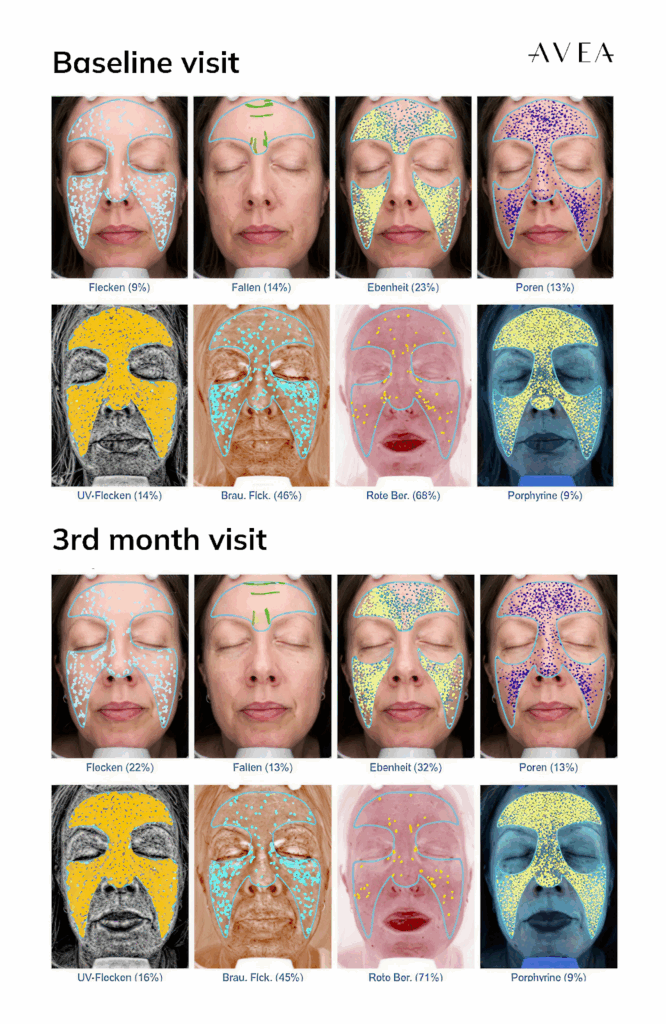
After just three months of consistent use of our Collagen Activator, Isabel’s skin analysis revealed measurable improvements across multiple markers:
- Hydration: Skin hydration levels surged by 18.6%, especially on her cheeks and arms.
- Spots & hyperpigmentation: Saw a dramatic 144.4% improvement, leading to a more even skin tone and reduced dark spots.
- Wrinkles: Initial increase, then smoothed out to a 7.1% decrease, giving her skin a more youthful look.
- Texture: Rapid enhancement of 73.9% within the first month, stabilising at 39.1%, leaving her skin smoother and more refined.
- Sun damage (UV spots): Reduced by 42.9% in the first month, settling at a 14.3% improvement after three months.
- Brown spots: Minor but steady reduction of 4.3% in the first month and 2.2% by the third month.
- Red areas (Inflammation): Reduced inflammation by 11.8% initially, with continued improvement to 4.4% by three months.
These changes, captured through a professional Visia scan imaging, reflect more than just surface-level improvements – they indicate a real shift in skin health from within.
AVEA Collagen Activator isn’t just about beauty – it’s about supporting long-term skin vitality on a cellular level. And Isabel’s story is just one example of what’s possible when science backs your skincare.
Overall, our clinical study showed promising results within 3 months – with significant changes in skin quality:
- Skin hydration improved by 30% within just 1 month
- Skin texture improved by 8% within just 1 month
- 97% of participants reported improvements in their skin quality within 3 months
- On average, we observed a reduction in biological age by 1.4 year
Developed in Switzerland, our Collagen Activator has gone through rigorous clinical testing at ETH Zurich, with an observational human study at Hautwerk dermatology Clinic.
Read more about AVEA Collagen Activator in this published paper in Natures npj Aging.
